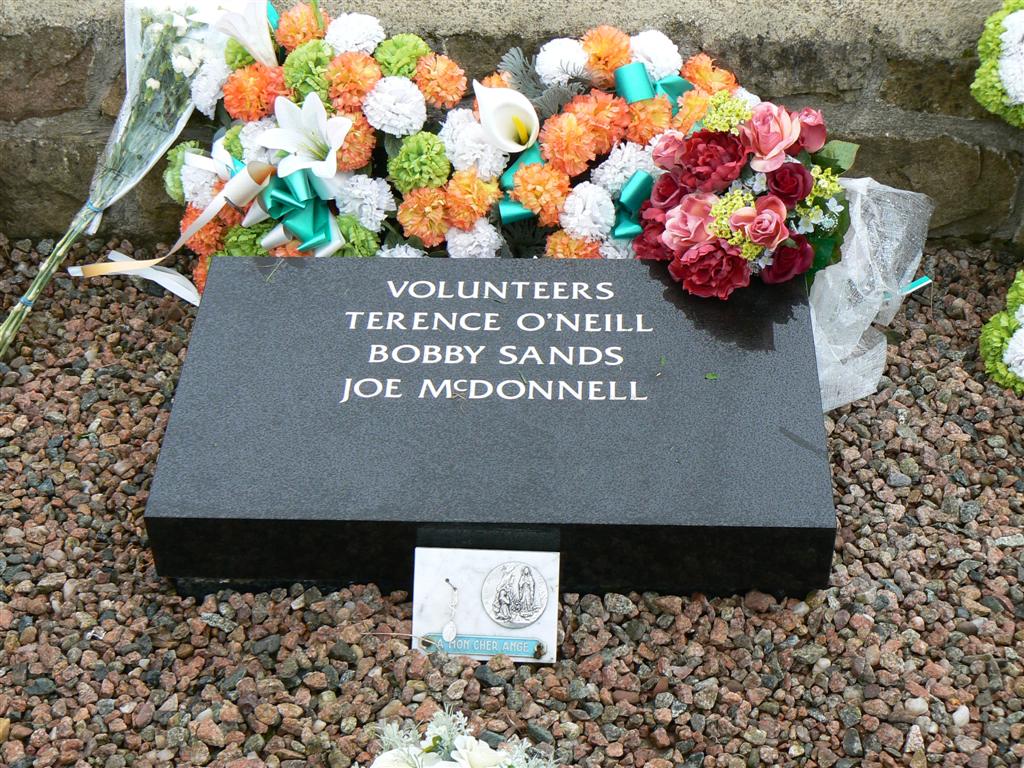On October 3, the Philadelphia Irish Community will commemorate the 40th Anniversary of the 1981 Irish Hunger Strike, the culmination of a protest carried out by Irish republican prisoners after the British government withdrew their status as prisoners of war. By that point, The Troubles in Northern Ireland had taken its toll on the population and as hunger strikers began to die in 1981, it provoked even more outrage.
October 3 marks the end of the hunger strike. It had gone on for five months. In all, 10 men died in the process, beginning with Bobby Sands on May 5. Within two years after the end of the hunger strike, all five of the prisoners’ demands were implemented.
The Good Friday peace agreement in 1998 brought relative calm to Northern Ireland, but there are still plenty of people who want to keep the memory of the hunger strikers alive in America today.
One of those is Bob Dougherty, whose interest in the Irish republican struggle began when he was a young man.
“I was 23 years old when the first hunger striker, Bobby Sands, died. I really had no interest in IRA stuff at the time,” he says. “And this sort of sparked interest, and I joined the Ancient Order of Hibernians. I guess it struck me when I first thought, why the hell would they starve themselves to death? It must be very serious. And so I began to learn about the injustice and the inhumane ways they were being treated.”
When it comes to the republican causes, Dougherty and others never forget.
“We do a commemoration for Joe McGarrity (an Irish-American political activist who supported the republican cause) on Easter, every year we do the hunger strike mass and we join with the Derry Society to do the Bloody Sunday commemoration.” Dougherty says. “We feel it’s important that there are so many people who sacrificed over the years and that these people are remembered and given a fitting tribute. It’s good to remember that this didn’t go on for nothing.”
The upcoming event in October is a bit different from previous remembrances. One of the main goals is to educate people on who the hunger strikers were and what they did, consisting of walk-through tributes to each hunger striker created by various Irish organizations. Those groups will “adopt” a hunger striker to create these tributes.
Dougherty explains.
“What we’re doing is we’re having everybody adopt a hunger striker. They will learn about them and then put their display up at the Irish Center. We’re going to have an area set aside for, say, Bobby Sands, and the group the Dublin Society actually adopted Bobby Sands. Between now and October 3, they’ll do all the reading about his history. They’ll put up a display of pictures. And you can walk through history and learn about Sands and read some handouts. Hopefully we’ll get some more audio and video stuff that people can hear about the particular hunger striker.”
Dougherty hopes that these displays will be a good source to educate younger generations about these historical figures.
“When the kids walk through, they might see other kids educating,” he says. “So we hope to commemorate in a fitting tribute and educate people and hopefully younger people and have them ask the question, well, what’s going on now or what can I do?”
These questions, he says, likely aren’t on the minds of too many young people in America these days. “You get the censored, watered-down version of everything that happens,” Dougherty says. “There’s so much stuff going on in our country, that it’s hard to think outside the bubble. Well, it’s hard to worry about others when you have to worry about our own. But in a way they are our own.”
Dougherty himself has a long history of supporting the Irish republican cause from Philadelphia. “I got involved in bringing children of political prisoners over to America, children of somebody who was in jail, or who was killed due to The Troubles. We strictly worked with the republican POW department over there, Tar Anall. Eventually I became the Philadelphia director, then on to the national director.”
This issue is very personal to Dougherty. He explains, “I’m the same age of those people that died. I go over there and I visit people, I meet people that were on the blanket protest, and they looked like me.”
Ahead of the October event, a meeting is being held on June 16 at 7 p.m. at the Irish Center, 6815 Emlen Street in Mount Airy. Dougherty says, “We hope to have all of the hunger strikers personally adopted and a general understanding of which way people are going to go with it. We’re also planning on having live music in October. I’m figuring that travel restrictions will be lifted and we will definitely have representatives from Ireland over here, as well.”
A lot will be going on at this event to commemorate the hunger strikers and a large amount of planning and preparation is involved. Dougherty notes, “Unfortunately, it’s not exactly a cheerful day, but hopefully we can make it educational. Someday, we’re going to have a celebration instead of a commemoration.”

